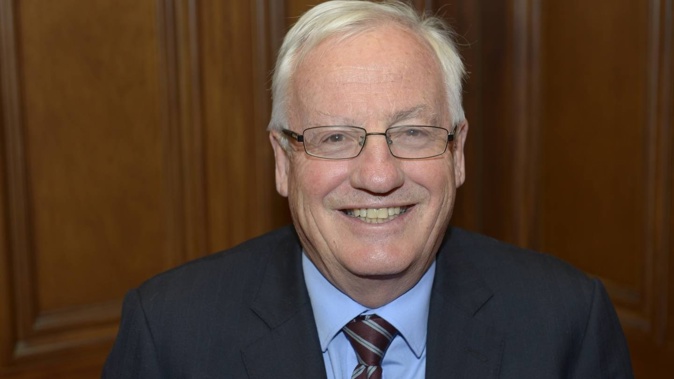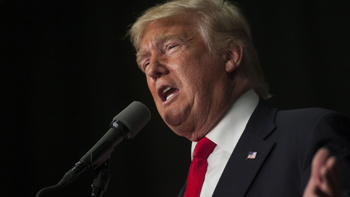
A former New Zealand Supreme Court judge is refusing to engage “in debate” about his appointment to a Hong Kong court, which one commentator says is part of a “totalitarian system”.
The Hong Kong Court of Final Appeal has faced increased scrutiny following China’s passing of the controversial national security law, legislation that prompted New Zealand to suspend its extradition treaty with Hong Kong and claim it was suffering an erosion of rule-of-law principles.
A number of foreign judges have also left the court, some referencing the perception that sitting on the court may appear to suggest an endorsement of an “administration which has departed from values of political freedom and freedom of expression”.
But last week, Hong Kong chief executive John Lee Ka-chiu accepted a recommendation for New Zealander Sir William Young to be appointed as a non-permanent judge on court. Sir William’s appointment needs to be endorsed by the local Legislative Council.
“He is a judge of eminent standing and reputation,” the chief executive said. ”I am confident that he will contribute substantively to the Court of Final Appeal.”
He said the presence of “esteemed overseas jurists” on the court was a “manifestation of the independence of the judiciary” in Hong Kong.
“Their participation demonstrates a high degree of confidence in the Hong Kong SAR’s judicial system, and enables Hong Kong to maintain strong links with other common law jurisdictions.”
But Simon O’Connor, a former National MP who was a member of the Inter-Parliamentary Alliance on China during his time in Parliament, was critical of the system in Hong Kong.
“Since Hong Kong introduced its National Security law in 2020, its justice system has been completely compromised and now run at the whim of the Chinese Communist Party,” he told the Herald.
“It has arrested former MPs, democracy activists, and the likes of Jimmy Lai and Cardinal Joseph Zen. Justices from the UK and Australia have all left the court, wanting nothing to do with the sham that it is. “
O’Connor said Sir William moving on the court “shows an appalling lack of judgment”. He said he was becoming part of a “totalitarian system” and didn’t believe it reflected well on New Zealand at any level.
Sir William didn’t directly answer questions the Herald presented to him, including what led him to wanting to join the court, whether he held any concerns about it, and if he believed the court and its rulings were independent.
“Over recent years, there has been much discussion about foreign judges sitting on the Hong Kong Court of Final Appeal,” he said.
“I would not accept appointment to that Court unless satisfied that it was proper for me to do so. Apart from that, I have nothing to say that has not already been said. This being so, I do not see any point in engaging in debate about my appointment.”
Sir William served on the Supreme Court between 2010 and 2022, following four years as the president of New Zealand’s Court of Appeal. He also briefly joined a Dubai court, before stepping down after just weeks due to mounting pressure from human rights campaigners.
 Former National MP Simon O'Connor is critical of the system in Hong Kong. Photo / Mark Mitchell
Former National MP Simon O'Connor is critical of the system in Hong Kong. Photo / Mark Mitchell
A statement from Chief Justice Andrew Cheung said the court currently has four non-permanent Hong Kong judges and five non-permanent judges from other overseas jurisdictions.
“The recommended appointment of Sir William Young to the Hong Kong Court of Final Appeal will increase the number of non-permanent judges from other common law jurisdictions from five to six. This will provide greater flexibility in dealing with the caseload of the Court of Final Appeal.”
New Zealand’s Ministry of Foreign Affairs and Trade says that autonomy provided to Hong Kong under the ‘One Country, Two Systems’ principle has been “undermined” recently.
“Since China’s imposition of the National Security Law in 2020 there has been a steady erosion of rights and freedoms in the city,” the MFAT website says.
In 2020, Foreign Affairs Minister Winston Peters announced the suspension of New Zealand’s extradition treaty with Hong Kong in light of China’s decision to pass a national security law.
That law criminalised anything viewed as secession at a time when there was heightened attention on the Hong Kong pro-democracy movement. It allowed extradition to the mainland and strengthened Beijing’s role in the city.
“New Zealand can no longer trust that Hong Kong’s criminal justice system is sufficiently independent from China. If China in future shows adherence to the ‘one country, two systems’ framework then we could reconsider this decision,” Peters said at the time.
New Zealand’s current travel advice to Hong Kong, last updated in December, says travellers should “exercise increased caution”. It notes specifically that national security laws there could lead to the risk of “arbitrary arrest and prosecution”.
Several British judges have left the court in recent years. In 2022, the UK’s Lord Reed resigned, saying that since Hong Kong’s national security law had been introduced, judges’ positions on the court had become “increasingly finely balanced”.
“The courts in Hong Kong continue to be internationally respected for their commitment to the rule of law.
“Nevertheless, I have concluded, in agreement with the government, that the judges of the Supreme Court cannot continue to sit in Hong Kong without appearing to endorse an administration which has departed from values of political freedom, and freedom of expression, to which the Justices of the Supreme Court are deeply committed.”
Last month, an Australian judge quit the court. Robert French said he still respected overseas judges in Hong Kong and rejected the view they are “somehow complicit in the application by the executive of national security laws or somehow confer on them a spurious legitimacy”.
However, he is also reported to have said the role of foreign judges “has become increasingly anachronistic and arguably cosmetic”.
Jamie Ensor is a political reporter in the NZ Herald Press Gallery team based at Parliament. He was previously a TV reporter and digital producer in the Newshub Press Gallery office.
Take your Radio, Podcasts and Music with you









